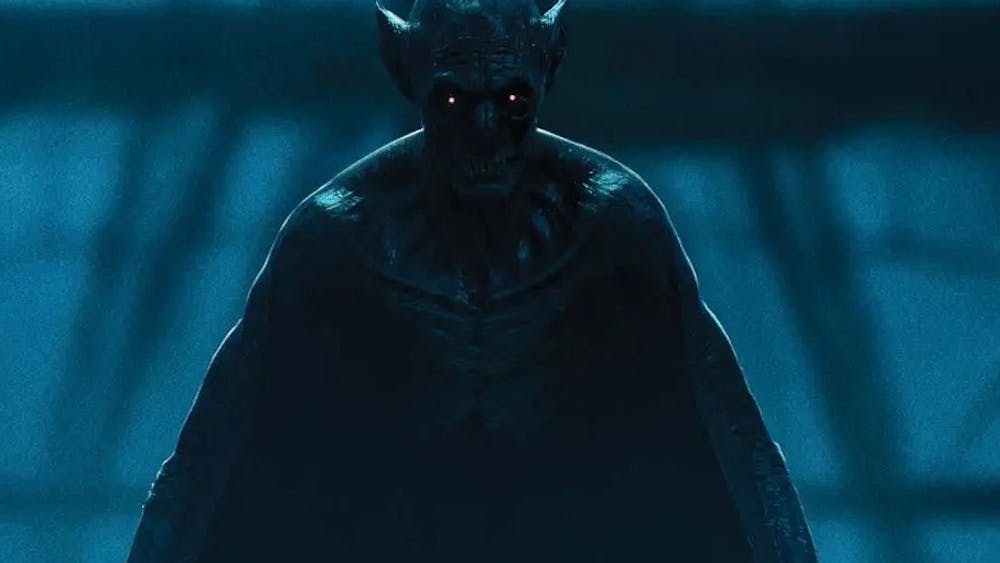What composer/librettist Mark Adamo understands about opera is that it is theater. The great masterworks of operatic literature that are perennially produced in opera houses across the world were written in a time when opera (as all theater) was meant as a star vehicle for its performers.\n"Little Women," Adamo's first opera, is written as a theater piece -- it is dramatically sound, has well-developed characters and is meant to be seen as well as heard. It is thus appropriate that the star in this performance was Adamo, and his opera was the vehicle.\nAided indelibly by both an able cast and the Chamber Orchestra under guest conductor Ted Taylor (like Adamo, new blood and full of life), Saturday evening's opening could have been an exceptional evening of Opera Theater. But the stylistic clash between Adamo's work and the IU Opera Theater production made that prospect impossible.\nThe opera uses two specific musical motifs throughout as Jo March recounts her story to us through flashback. These motifs illustrate the struggle between the "frightened" girl inside and the tough exterior she portrays to all. \nIn an interesting reversal, Adamo composed the role (the lead for the opera) as an alto. The lower register allows for a more mature and stronger sounding character, but the lightness of the lines and its vulnerability brings out the romantic inside her.\nAs the ages of the sisters go down, the registers go up. Thus, Meg is a mezzo, Beth a soprano and Amy also a soprano but singing a descant compared to Beth's line. Adamo also uses the music to help further his dramatic motifs; the close-knit harmonies of the sisters at the beginning, symbolizing their sorority, are then broken and spread across the stage as they grow apart. \nSimilarly, the composer also understands humor in music, as he simulates a baby's crying with oboe reeds played outside of their instruments. He also takes a crack at modern opera productions and their use of supertitles.\nAdamo's opera is smart, works as a piece of operatic theater and leaves one feeling as though there is hope for the future of contemporary opera. It also can be quite moving, but it could have been more than it was.\nThe production design (created in conjunction with the Minnesota Opera) makes use of a small space and is not as grandiose in stature as other IU Opera productions, which in this case is a blessing. \nBut even in its chamber-like setting, bringing the opera to the audience was difficult. More than half of the staging was on a raised platform about 10 feet in the air and at least 15 feet from the edge of the stage -- essentially, the opera took place as far away from the audience as it could get. While stage director Vince Liotta conjured up Jo's past by introducing her sisters in silhouettes or shadows, he did not allow the fullness of the drama to take its complete toll on the audience. \nDramatically tense moments became timid when the performers failed to play against each other. There was also too much standing and singing and not enough listening and reacting. Where a moment between a suffering lover and his unremitting beloved became a set of pacing back and forth, the tension was lost.\nThis is not to say that all was lost emotionally. Three times in the opera, partially because of the performers and partially because of the score, the audience sat in complete silence, floored by the passion and longing displayed on the stage. Graduate student Kate Mangiameli who played Meg delivered a harrowing aria in the first act as she told her sister (upon her engagement to John Brooke) that "things change, Jo." \nIn the second act, graduate student Sam Spade sang a love song to Jo that was to make her character swoon after their night at the opera. Spade, through color and shading, was able to make the audience swoon, as well. \nBut, in perhaps one of the most touching quartets ever to grace the Musical Arts Center stage, graduate student Leslie Mutchler (Jo), Mangiameli, senior Tiffany Rosenquist (Beth) and graduate student Anita Rollo (Amy) came together to beautifully sing "One Soul." In bringing the three ghosts of her sister's past, Jo confronted the trial that had been plaguing her since Meg's first meeting with John Brooke -- were they perfect as they were, or can things change?\n"Little Women" may not be as masterful in composition as a Verdi or Puccini opera or even Adamo's own contemporaries -- in fact, Adamo's music may resemble Stephen Sondheim more in tonality and theatrical shaping than it does most composers of operatic literature. But this piece is one that shall continue to please audiences around the globe, even when its productions cannot match the artistry of the composition.
"Little Women" provides segue to stardom
Get stories like this in your inbox
Subscribe





